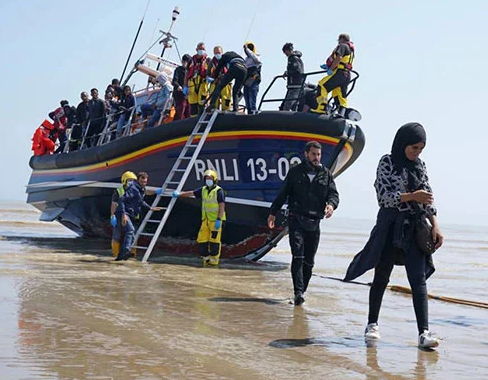Geneva: The UN’s migration agency is launching its first “global appeal,” seeking $7.9 billion to help people on the move and ensure smoother pathways to migration, at a time when the fallout from climate change, conflict, and both economic distress and opportunities has caused millions to leave their homes.
The annual appeal from the International Organization for Migration puts the Geneva-based agency more in the hunt for aid funds, along with other UN agencies and humanitarian groups, at a time when many top donor governments face tight budgets or are reducing aid outlays.
The UN humanitarian aid chief, Martin Griffiths, last month decried a “severe and ominous funding crisis” and said the overall $57 billion appeal from his UN Office for the Coordination of Humanitarian Affairs last year was only about one-third funded, making it the worst funding shortfall in years. His agency is seeking $46 billion this year.
IOM says it hopes funding for its appeal will come from individual and private-sector donors in addition to governments.
It’s part of a five-year strategic plan under IOM’s new director-general, Amy Pope, and would benefit 140 million people — both migrants and the communities that take them in.
“Irregular and forced migration have reached unprecedented levels and the challenges we face are increasingly complex,” Pope said. “The evidence is overwhelming that migration, when well-managed, is a major contributor to global prosperity and progress.”
Speaking to reporters in Geneva Monday, she said agencies like hers should be planning for future migration rather than simply reacting to waves of migration when they happen.
“The evidence shows us that only being reactive means that more people are dying and being exploited as they migrate. This appeal will allow us to save more lives and work together more responsibly,” she said.
The agency plays up the promise of migration — reporting that some 281 million international migrants, ranging from manual labourers to white-collar job-holders, generate nearly 10% of global economic output.
Sometimes, desperate migrants take dangerous journeys to reach greater freedom, escape poverty or search for work. IOM’s “Missing Migrants” project estimates at least 60,000 people have died or disappeared on perilous travels in the last nine years, such as crossings from north Africa — especially Libya — across the Mediterranean to Europe.
AP
